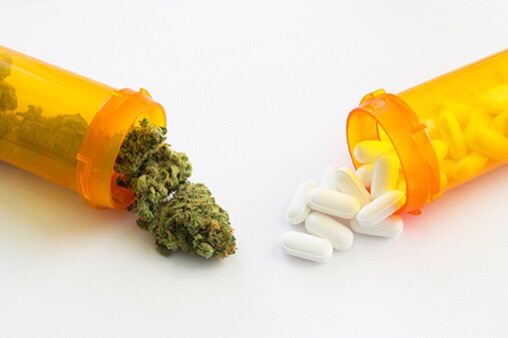Marijuana and Opioids in Workers’ Compensation
At the 2018 NCCI Annual Issues Symposium, David Deitz, MD, and Raji Chadarevian from NCCI discussed the use of medical marijuana and opioids in workers’ compensation.
The number of claims that included the use of opioid medications in workers’ compensation decreased 12% from 2014 to 2015 and 8% in from 2015 to 2016. Overall, opioid utilization in workers’ compensation has declined over 30% from 2012 to 2016. The biggest decrease in opioid use is being driven by newer claims because the inappropriate prescribing is being stopped early on. The worst claims for continued opioid use are over 10 years old. Long-term heavy users of opioids account for approximately 80% of all opioids prescribed in workers’ compensation.
In terms of medical marijuana, there are two very divergent perspectives that are common. One view that it has minimal medicinal value and people use it to get high, and the other view being that medical marijuana is a wonder drug that is proven to treat many conditions. Neither perspective is true.
There is evidence to support that the CBD in marijuana can reduce anxiety, inflammation and impact other conditions. The THC in marijuana can stimulate appetite and, if a person has chronic pain, the THC is seen as the key to treatment. It is the THC component that makes you “high”.
A study done in January 2017 by the National Academy of Sciences, Engineering and Medicine found substantial evidence that marijuana was an effective treatment for chronic pain and also for the nausea and vomiting associated with chemotherapy. We do not know more about the effectiveness of marijuana as a treatment because it is classified as Schedule I by the FDA. This limits how much study can be done on it and the strain legally available for study is much less potent than what is available in commercial dispensaries.
Should we be considering medical marijuana in workers’ compensation? Any drug therapy is a passive treatment for chronic pain and it is unlikely to increase function. The impairment caused by marijuana will inhibit your ability to drive a car or work. Marijuana should not be considered the primary treatment for any condition in workers’ compensation.
It is possible that the use of marijuana to treat pain in workers’ compensation could decrease opioid use. Studies have shown a significant decrease in opioid prescriptions and deaths in states with legalized medical marijuana. We know the significant side effects of the opioid medications, so marijuana may be a better alternative for some people.
What we need right now is more studies on whether marijuana is indeed an effective treatment option for certain conditions. The first step in this is rescheduling it from a Schedule I to Schedule II so that it can be studied and prescribed.


